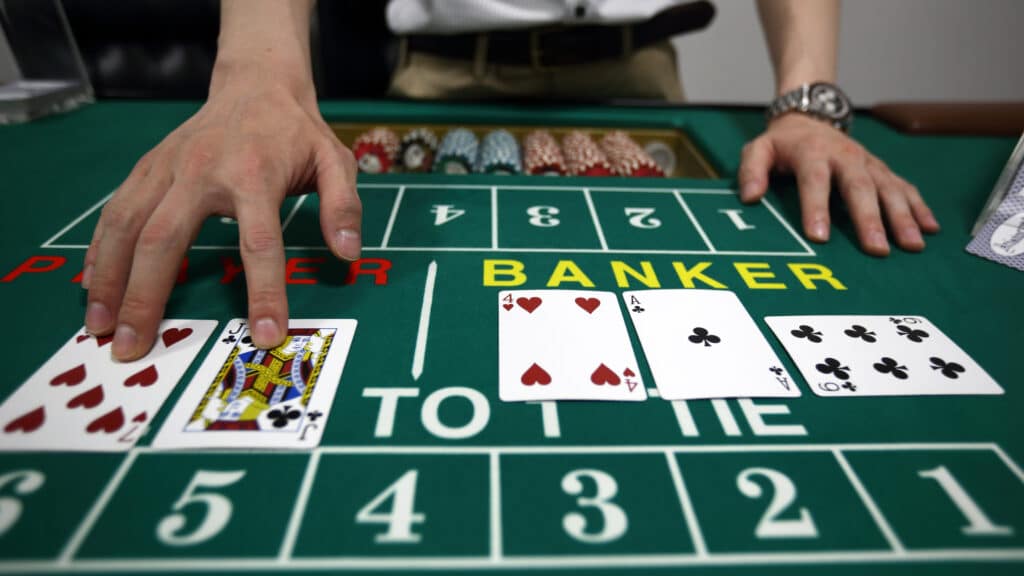Are casino games rigged? This is a question pondered by gamblers of all levels, from those taking their first tentative steps into a casino to seasoned veterans who have seen fortunes won and lost. Understanding the mechanics and probabilities behind casino games is crucial for anyone looking to gamble responsibly and make informed decisions.
The House Edge: Built-In Advantage
The concept of the "house edge" is fundamental to understanding casino games. It's not about rigging in the traditional sense, but rather a carefully calculated mathematical advantage that ensures casinos make a profit over the long term. Every casino game, from slot machines to blackjack and roulette, is designed with a house edge. This edge is expressed as a percentage and represents the average profit the casino expects to make from each bet a player places.
For example, American Roulette, with its two green slots (0 and 00) in addition to the numbers 1-36, has a house edge of approximately 5.26%. This means that, on average, for every $100 wagered on roulette, the casino expects to keep $5.26 in profit. European Roulette, with only a single zero, has a lower house edge of around 2.7%, making it statistically more favorable for players.
The house edge is not a guarantee of winning for the casino on every single game or every single bet. Short-term variance is a significant factor in gambling. Players can and do win, sometimes large sums, even playing games with a house edge. However, over thousands, or millions, of bets, the law of large numbers kicks in, and the casino's mathematical advantage becomes increasingly apparent, leading to consistent profitability.
It's important to distinguish the house edge from the idea of games being "rigged." The house edge is a transparent, mathematically determined advantage built into the game's rules and payouts. Rigging, on the other hand, implies manipulation of game outcomes to unfairly disadvantage players beyond the stated house edge.
Random Number Generators (RNGs): The Heart of Casino Games
In modern casinos, especially online, the outcomes of most games are determined by Random Number Generators (RNGs). These are sophisticated computer algorithms designed to produce sequences of numbers that are statistically random and unpredictable. RNGs are the backbone of slot machines, video poker, and many online casino games.
A true RNG should exhibit several key properties: randomness (numbers appear without pattern), unpredictability (future numbers cannot be predicted from past numbers), and uniform distribution (all possible numbers have an equal chance of being generated). To ensure fairness and integrity, reputable online casinos and slot machine manufacturers use certified RNGs that are regularly tested and audited by independent third-party testing agencies.
These testing agencies, such as eCOGRA (e-Commerce Online Gaming Regulation and Assurance) and Gaming Laboratories International (GLI), put RNGs through rigorous statistical tests to verify their randomness and fairness. These tests include checks for bias, patterns, and predictability. Casinos that are licensed and regulated in reputable jurisdictions are typically required to use certified RNGs and undergo regular audits to maintain their licenses.
While RNGs are designed to be random, it's crucial to understand that "random" in this context is statistical randomness, not true unpredictability in a philosophical sense. Computer algorithms are deterministic, meaning they follow a set of rules. However, well-designed RNGs use complex algorithms and often incorporate external sources of randomness (like atmospheric noise) to generate sequences that are practically unpredictable for players and statistically sound for fair gaming.
The use of RNGs, when properly certified and audited, actually increases the fairness and transparency of casino games compared to older mechanical methods. Mechanical slot machines, for example, could be subject to wear and tear or subtle manipulations that could affect their randomness. Well-regulated RNGs offer a higher degree of consistency and verifiability.
Regulation and Licensing: Ensuring Fair Play
The gambling industry is heavily regulated in most jurisdictions to protect consumers and ensure fair play. Regulatory bodies, often government agencies or independent commissions, are responsible for licensing casinos, setting standards for game fairness, and overseeing casino operations. These bodies play a critical role in preventing rigging and maintaining the integrity of the gambling industry.
Licensing is a key aspect of regulation. Casinos operating in regulated jurisdictions must obtain a license from the relevant authority. To obtain and maintain a license, casinos must meet stringent requirements related to financial stability, security, responsible gambling practices, and, crucially, game fairness. Regulatory bodies conduct background checks on casino operators, monitor their financial transactions, and audit their games and RNGs to ensure compliance.
Regulations often specify minimum payout percentages for certain types of games, particularly slot machines. For example, a jurisdiction might require that slot machines have a minimum payout percentage of 85% or 90%. This means that, over the long run, the machine must return at least that percentage of all money wagered to players as winnings. While this doesn't guarantee individual wins, it sets a lower limit on how much the casino can theoretically keep.
In addition to licensing and payout regulations, regulatory bodies also handle player complaints and disputes. If a player believes they have been unfairly treated or that a game is rigged, they can file a complaint with the regulatory authority. The authority will investigate the complaint and take action if necessary, which could range from fines to license revocation. This oversight mechanism provides a level of protection for players and helps to deter casinos from engaging in unfair practices.
However, the level of regulation and oversight varies significantly between jurisdictions. Casinos operating in well-regulated jurisdictions, such as Nevada, New Jersey, the UK, and Malta, are generally subject to much stricter scrutiny than those licensed in less regulated or offshore jurisdictions. Players should be aware of the licensing jurisdiction of an online casino and choose to play at casinos licensed in reputable locations to have greater assurance of fair play.
Common Misconceptions and "Gambler's Fallacy"
Despite the regulations and RNG technology designed to ensure fairness, many gamblers harbor suspicions that casino games are rigged against them. These suspicions often stem from misunderstandings of probability, randomness, and the house edge, as well as psychological biases that can distort perceptions of game outcomes. One common misconception is the "gambler's fallacy," also known as the Monte Carlo fallacy.
The gambler's fallacy is the mistaken belief that past events influence future independent events. In gambling, this often manifests as the idea that after a series of losses, a win is "due," or that after a run of reds in roulette, black is more likely to come up next. In reality, in games with truly random outcomes, each spin of the roulette wheel, each deal of cards, and each slot machine spin is independent of previous outcomes. The odds remain the same on every play, regardless of what has happened before.
For example, if a roulette wheel lands on red five times in a row, the probability of the next spin landing on red is still the same as it was on every previous spin (approximately 47.37% in European Roulette, excluding the zero). The wheel has no memory of past outcomes, and there is no mechanism that makes black "due" to appear. Falling prey to the gambler's fallacy can lead players to make irrational betting decisions, increasing their losses.
Another misconception is that casinos can secretly manipulate RNGs or game outcomes in real-time to make players lose. While theoretically possible in unregulated or unscrupulous operations, this is highly unlikely in licensed and regulated casinos. The risk of detection, severe penalties, and reputational damage far outweighs any potential short-term gains from rigging games. Regulatory bodies and testing agencies conduct ongoing monitoring and audits to detect and prevent such manipulations.
Furthermore, the house edge already provides casinos with a substantial and sustainable profit margin over the long run. There is no economic incentive for reputable casinos to engage in risky and illegal rigging practices when the inherent game design already favors them mathematically.
Game Variations and Odds: Understanding the Differences
While casino games, in general, are not rigged in the sense of being unfairly manipulated, it's crucial for players to understand that different games and even variations within the same game can have significantly different odds and house edges. Being informed about these differences is essential for making smart gambling choices.
For instance, slot machines are known for having a wide range of house edges, often higher than table games. The payout percentage (RTP - Return to Player) of a slot machine can vary from below 90% to over 98%, depending on the specific game. Players should ideally seek out slots with higher RTPs to improve their odds, although this information is not always readily available and can vary by jurisdiction.
Table games like blackjack, baccarat, and craps generally offer lower house edges than slot machines, especially when played with optimal strategy. Blackjack, in particular, is a game where player skill can significantly influence the house edge. By using basic blackjack strategy, players can reduce the house edge to below 1% in some variations. However, deviations from optimal strategy increase the house edge, benefiting the casino.
Different variations of the same game can also have different odds. As mentioned earlier, European Roulette has a lower house edge than American Roulette due to the single zero. Similarly, different variations of video poker offer varying payout tables, which directly impact the house edge. Players should familiarize themselves with the specific rules and payout structures of the games they choose to play and select variations with more favorable odds.
Progressive jackpot games, while offering the allure of massive payouts, often have lower base payout percentages to fund the jackpot. This means that while the potential for a life-changing win exists, the overall odds of winning on each spin or hand are typically lower compared to non-progressive games.
Psychological Factors: Perception vs. Reality
The perception that casino games are rigged can also be influenced by psychological factors. Gambling is an emotionally charged activity, and losses can be particularly frustrating and lead to feelings of unfairness, even when the games are statistically fair. Cognitive biases, such as the "availability heuristic" (overestimating the likelihood of events that are easily recalled, like stories of rigged games) and "confirmation bias" (seeking out information that confirms pre-existing beliefs), can reinforce these perceptions.
The way casinos are designed also plays a role. Casinos are carefully constructed environments designed to encourage prolonged play and spending. The absence of clocks and windows, the constant availability of alcohol, and the sensory stimulation of lights and sounds all contribute to a disorienting and immersive atmosphere that can impair judgment and increase impulsivity. These environmental factors, while not rigging the games themselves, can contribute to players making poorer decisions and experiencing greater losses, which might then be attributed to unfairness.
Furthermore, the inherent nature of gambling, with its mix of wins and losses, can create patterns that players may misinterpret as evidence of rigging. Streaks of losses, even within the expected statistical variance, can feel personally targeted and lead to suspicion. It's important for gamblers to maintain a rational perspective, understand the role of variance, and avoid emotional reasoning when evaluating game outcomes.
Responsible gambling practices include setting limits on time and money spent gambling, understanding the house edge and odds of different games, and recognizing when gambling is becoming a problem. Seeking information from reliable sources about game mechanics and probabilities can help players develop a more realistic understanding of casino gambling and reduce the likelihood of misattributing losses to rigging.
Conclusion: Fairness Within a House Edge Framework
In conclusion, the assertion that casino games are universally "rigged" in the sense of being actively manipulated against players is largely inaccurate, particularly in licensed and regulated casinos. The foundation of casino profitability lies in the house edge, a mathematically calculated advantage built into the game rules and payouts. This house edge ensures that, over the long run, casinos will statistically profit from player wagers.
Reputable casinos utilize certified Random Number Generators (RNGs) and are subject to regulatory oversight and independent audits to ensure game fairness and prevent manipulation. While the house edge guarantees casino profits, it does not equate to rigging. Players can and do win, but they must understand that they are playing games of chance with pre-set odds that favor the house in the long run.
Misconceptions about rigged games often arise from misunderstandings of probability, cognitive biases, and emotional responses to losses. Educating oneself about game mechanics, odds, and responsible gambling practices is crucial for a balanced and informed approach to casino gambling. Choosing to play at licensed and regulated casinos in reputable jurisdictions further enhances the assurance of fair play.
Ultimately, the question isn't whether casino games are rigged, but rather whether players understand and accept the inherent house edge and the role of chance in gambling. In a fair casino environment, the games are designed to be profitable for the house through probability, not through cheating. Responsible gambling involves playing within one's means, understanding the risks, and viewing gambling as a form of entertainment with the inherent possibility of both wins and losses.
External Resources:



